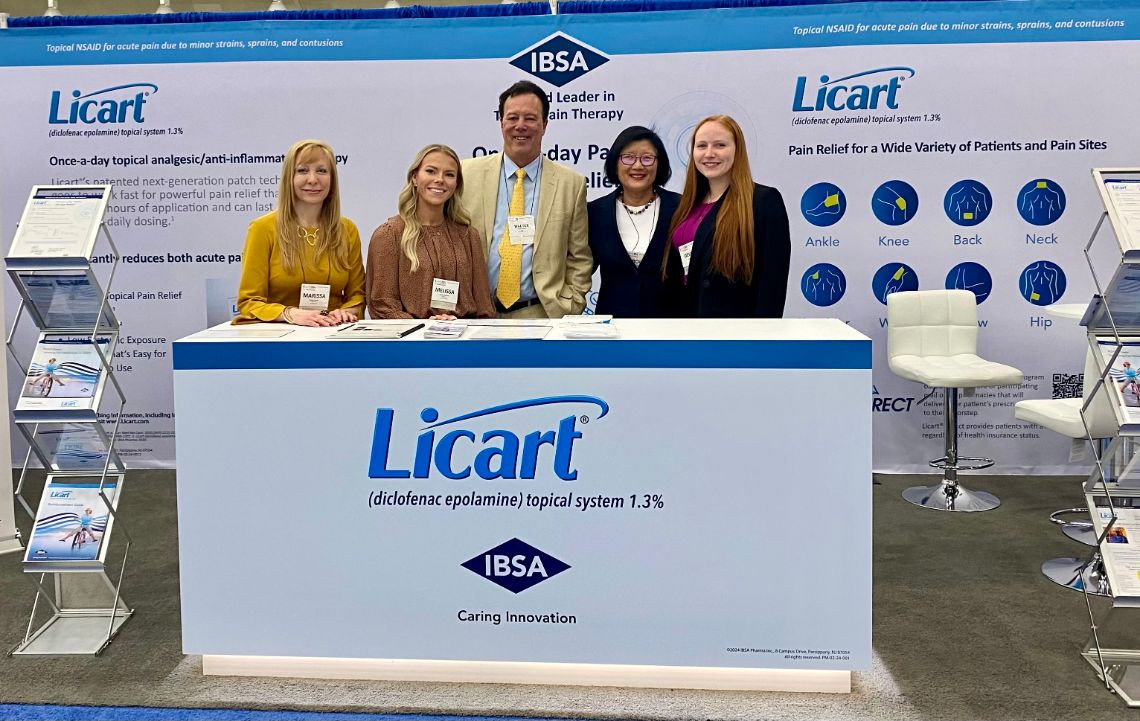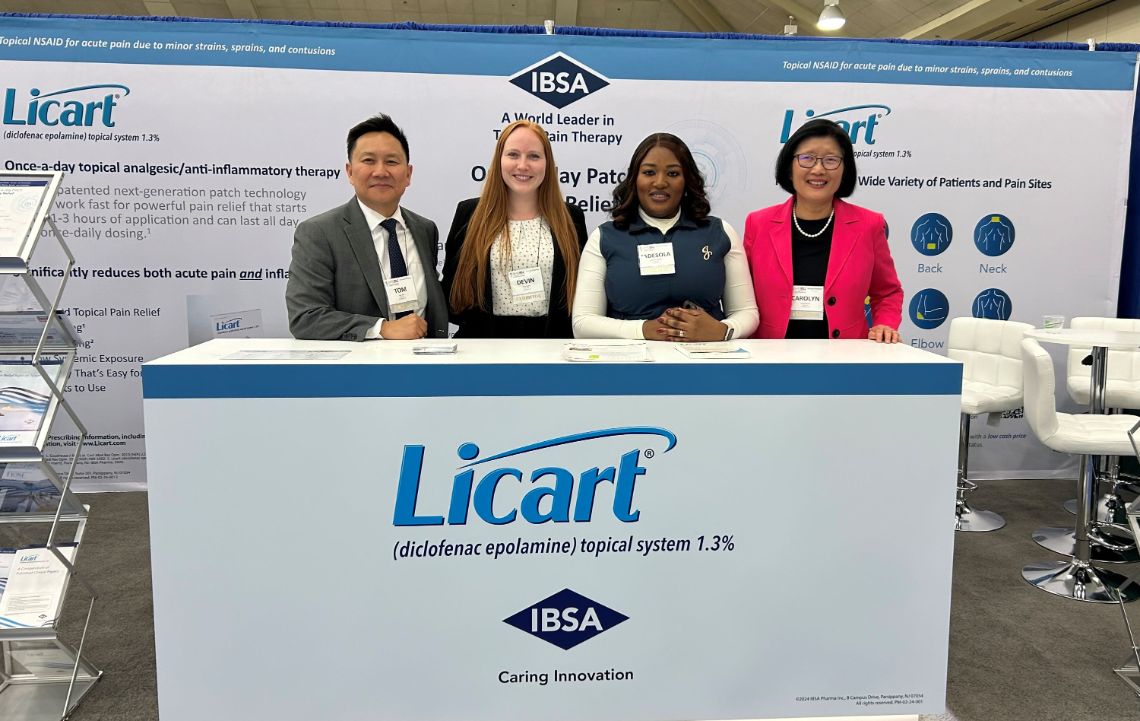IMPORTANT SAFETY INFORMATION
WARNING: RISK OF SERIOUS CARDIOVASCULAR and GASTROINTESTINAL EVENTS
Cardiovascular Thrombotic Events
• Nonsteroidal anti-inflammatory drugs (NSAIDs) cause an increased risk of serious cardiovascular thrombotic events, including myocardial infarction and stroke, which can be fatal. This risk may occur early in the treatment and may increase with duration of use.
• LICART is contraindicated in the setting of coronary artery bypass graft (CABG) surgery
Gastrointestinal Bleeding, Ulceration, and Perforation
• NSAIDs cause an increased risk of serious gastrointestinal (GI) adverse events including bleeding, ulceration, and perforation of the stomach or intestines, which can be fatal. These events can occur at any time during use and without warning symptoms. Elderly patients and patients with a prior history of peptic ulcer disease and/or GI bleeding are at greater risk for serious GI events.
CONTRAINDICATIONS
LICART is contraindicated in the following patients:
• Known hypersensitivity (e.g., anaphylactic reactions and serious skin reactions) to diclofenac or any components of the drug product.
• History of asthma, urticaria, or other allergic-type reactions after taking aspirin or other NSAIDs. Severe, sometimes fatal, anaphylactic reactions to NSAIDs have been reported in such patients.
• In the setting of coronary artery bypass graft (CABG) surgery.
• On non-intact or damaged skin resulting from any etiology, including exudative dermatitis, eczema, infected lesions, burns or wounds.
WARNINGS AND PRECAUTIONS
• Hepatotoxicity: Inform patients of warning signs and symptoms of hepatotoxicity. Discontinue if abnormal liver tests persist or worsen or if clinical signs and symptoms of liver disease develop
• Hypertension: Patients taking some antihypertensive medications may have impaired response to these therapies when taking NSAIDs. Monitor blood pressure
• Heart Failure and Edema: Avoid use of LICART in patients with severe heart failure unless benefits are expected to outweigh risk of worsening heart failure
• Renal Toxicity: Monitor renal function in patients with renal or hepatic impairment, heart failure, dehydration, or hypovolemia. Avoid use of LICART in patients with advanced renal disease unless benefits are expected to outweigh risk of worsening renal function
• Anaphylactic Reactions: Seek emergency help if an anaphylactic reaction occurs
• Exacerbation of Asthma Related to Aspirin Sensitivity: LICART is contraindicated in patients with aspirin-sensitive asthma. Monitor patients with preexisting asthma (without aspirin sensitivity)
• Serious Skin Reactions: Discontinue LICART at first appearance of skin rash or other signs of hypersensitivity
• Premature Closure of Fetal Ductus Arteriosus: Avoid use in pregnant women starting at 30 weeks gestation
• Hematologic Toxicity: Monitor hemoglobin or hematocrit in patients with any signs or symptoms of anemia
• Drug Reaction with Eosinophilia and Systemic Symptoms (DRESS): Discontinue and evaluate clinically
• Fetal Toxicity: Limit use of NSAIDs, including LICART, between about 20 to 30 weeks in pregnancy due to the risk of oligohydramnios/fetal renal dysfunction. Avoid use of NSAIDs in women at about 30 weeks gestation and later in pregnancy due to the risks of oligohydramnios/fetal renal dysfunction and premature closure of the fetal ductus arteriosus
ADVERSE REACTIONS
Most common adverse reactions for LICART are application site pruritus and other application site reactions (6.1)
To report SUSPECTED ADVERSE REACTIONS, contact IBSA Pharma Inc. at 1-800-587-3513 or FDA at 1-800-FDA-1088 or www.fda.gov/medwatch.
For Full Prescribing Information, including Boxed Warning, go to https://licart.com/wp-content/uploads/2023/03/Licart-Package-Insert-6-2023.pdf


